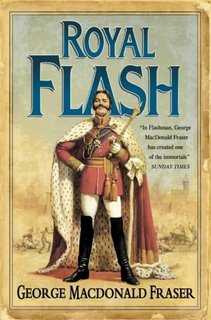 ... Gunpowder, treason, and plot!
... Gunpowder, treason, and plot!Saw V for Vendetta last night, one result of which is that I now have that rhyme running endlessly through my head. "I see no reason why gunpowder, treason / Should ever be forgot."
I wasn't sure what to expect, especially considering I have not read the original graphic novel. I knew the broad strokes -- a dystopian post-apocalyptic England set twenty-odd years in the future, in which a fascist-religious party has seized power and rules with an iron fist. Into the mix comes a vigilante in a Guy Fawkes mask determined to bring revolution to England and throw out the totalitarian regime.
This being the Wachowski brothers' first major project since The Matrix trilogy, I was expecting a lot of flash and style ... and certainly wasn't disappointed on that front. Among other things, the film is a pretty big hunk of eye-candy, with many shots and sequences (perhaps unsurprisingly) very reminiscient of The Matrix. Plus, the character of V is voiced by Hugo Weaving, aka Agent Smith, so there are some resonances there as well.
On the balance, I thought this was a good film, and independent of academic considerations, I really enjoyed it -- I suspect it's one of those films you'll either buy into and let it push your buttons, or instinctively resist and end up hating it.
The simple enjoyment factor is not what I'm concerned with, however ... I do think that this is a film that should be talked about. It is by no means a a straightforward indictment of the Bush Administration, as some critics have interpreted it: though the basic framework has been retooled such that the "apocalypse" of the original series, which was a nuclear war, is now the implosion of the "war on terror." The global state of affairs in the film -- in which England has been purged of "undesirables" and the U.S. has devolved into civil war -- is pretty specifically rooted in the current Iraq war. The suggestion (never stated explicitly) is of an untenable escalation of hostilities to the point where the western powers overextend themselves and collapse. Into the vacuum in England steps the quasi-Nazi "Norsefire" party, who are essentially allowed by the people to establish a regime of fear and intimidation replete with Orwellian surveillance, concentration camps and gestapo-tactics.

The key element of the film, and what makes it worth discussion, is the figure of V himself, who enjoins the people of England to recognize that "something is wrong with this country" and throw off the fear that has allowed the regime to maintain total control. From what I understand, the film is not nearly as nuanced as the graphic novel (big surprise), and the filmmakers cleaned up V so that he lacks the nastier qualities he posesses in the original. Still, there is enough ambivalence in his character to make this film worth a watch and to make it a point of discussion.
There are a significant number of problems I have with the story: first and foremost is the suggestion that revolution and change are necessarily violent. V's tactics are ruthless, and he acknowledges his own identity as, in part, a monster. If history teaches us anything, it is that the more violent the revolution, the more violent the backswing; one only has to look at events like the French Revolution to see how quickly they become their own antitheses. Arguably, the most profound change comes with non-violent but inexorable pressure like that exerted by Gandhi in India, or the Civil Rights movement in the U.S. And there is a climactic moment of this sort in V for Vendetta, but it is capped by a massive explosion.
There is also the suggestion that torture is a somehow clarifying, purging experience.
And I'm pretty certain I'm uncomfortable with the embracing of Guy Fawkes as a great hero and martyr.
On the other hand, it is these very ambivalences that make the film interesting to me -- if nothing else, it is a point from which to start reconsidering language and symbols reified and emptied of referents in the service of power, and the ways in which fear becomes a political tool in a massive game of bait-and-switch played out in the White House press room. In an odd way, I think this film makes a suitable companion piece to Ian McKellen's Richard III, in which Shakespeare's play is reinvented along the lines of an alternative history that sees a rise of fascism in 1930s England. Richard's oily right hand Buckingham plays the fear card at a crucial moment that facilitates the seizure of the throne:
Marry, my lord, lest, by a multitude,
The new-heal'd wound of malice should break out,
Which would be so much the more dangerous
By how much the estate is green and yet ungovern'd ...
At any rate ... a film, I think, well worth seeing. And more importantly, worth talking about.







